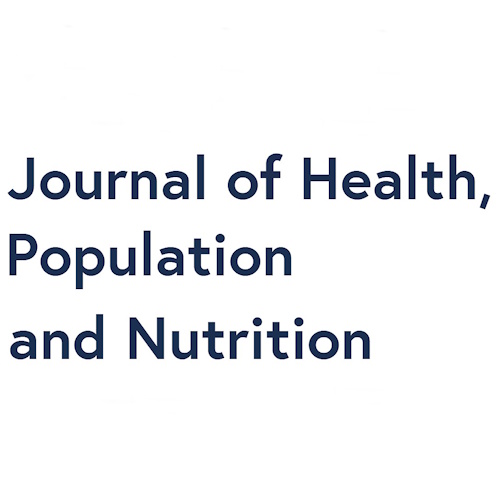Modern lifestyles have driven a surge in metabolic disorders such as diabetes, obesity, and cardiovascular disease. These conditions share key features—glucose intolerance, insulin resistance, and chronic low-grade inflammation. In response, non-pharmacological interventions like fasting have gained global attention. The reviewed study explored the impact of fasting on blood sugar control, lipid metabolism, and inflammation in adults, using data from randomized controlled trials involving hundreds of participants.
Fasting as a Metabolic Strategy
Fasting refers to a structured reduction or absence of food intake for specific periods. It can take several forms, including intermittent fasting, alternate-day fasting, and time-restricted eating. Each approach modifies energy balance and nutrient timing differently, influencing glucose regulation and lipid utilization.
Typical fasting patterns involve consuming between 300 and 700 calories on fasting days or restricting eating to specific time windows. These interventions aim to lower glucose production, improve insulin sensitivity, and reduce inflammatory markers. However, individual studies have shown mixed results, prompting this meta-analysis to determine fasting’s overall efficacy on cardiometabolic health.
How the Study Was Conducted
Researchers performed a comprehensive search across major scientific databases up to March 2025. They included only randomized controlled trials involving adults over 18 years old. The interventions compared fasting diets with control or unrestricted diets and measured outcomes like fasting blood glucose, HbA1c, insulin resistance, cholesterol, triglycerides, and inflammatory markers such as interleukin-6 and C-reactive protein.
Each study’s quality was evaluated using standardized tools, while data were statistically pooled to identify mean differences and confidence intervals for each outcome. Sensitivity analyses confirmed that no single study skewed the overall results.
Fasting and Blood Sugar Control
Among the included trials, fasting significantly lowered fasting blood sugar levels in adults with metabolic syndrome and glucose intolerance. It reduced fasting blood glucose and HbA1c, a long-term marker of glucose regulation. Insulin resistance, measured by HOMA-IR, also dropped significantly. These results confirm fasting’s role in enhancing glycemic control.
Interestingly, shorter-term fasting showed smaller improvements, while interventions lasting 12 weeks or longer led to stronger reductions in insulin resistance. This suggests that consistent and prolonged fasting regimens deliver greater metabolic benefits.
Interpreting the Glycemic Improvements
Fasting influences blood sugar through multiple pathways. It decreases glucose production in the liver and enhances insulin sensitivity, reducing the body’s demand for insulin. Fasting also triggers weight loss, which further improves glucose metabolism. Unlike short-term measures such as blood sugar or insulin levels that fluctuate daily, fasting blood sugar and HbA1c reflect sustained metabolic change. Therefore, fasting may exert its main benefits through long-term metabolic reprogramming rather than short-term glucose shifts.
Effects on Lipid Metabolism
Lipid profile improvements are crucial for cardiovascular protection. This analysis revealed a significant decline in low-density lipoprotein cholesterol, often called “bad cholesterol.” The reduction in LDL highlights fasting’s potential to reduce atherosclerosis risk and improve heart health. However, fasting did not significantly affect total cholesterol, high-density lipoprotein cholesterol, or triglyceride levels.
The decrease in LDL likely results from enhanced fat utilization during fasting. When energy intake drops, the body shifts toward using stored fat for fuel, breaking down lipids through lipolysis. This process reduces circulating atherogenic lipoproteins. Nevertheless, differences in fasting type, duration, and adherence may influence these outcomes. For instance, time-restricted eating and alternate-day fasting may yield variable lipid responses due to differences in caloric restriction patterns.
Inflammatory Markers and Fasting
Inflammation plays a pivotal role in metabolic diseases. Chronic inflammation impairs insulin signaling and contributes to vascular damage. Studies in the analysis reported significant reductions in interleukin-6 levels following fasting interventions. Interleukin-6 is a pro-inflammatory cytokine strongly linked to obesity and insulin resistance. By lowering this marker, fasting may create an anti-inflammatory internal environment.
However, fasting did not significantly reduce C-reactive protein or tumor necrosis factor-alpha levels. The limited number of studies and small sample sizes might have reduced the ability to detect significant changes in these markers. Nonetheless, the consistent decrease in interleukin-6 supports fasting’s potential to mitigate inflammation and improve metabolic resilience.
Mechanisms Behind Fasting’s Anti-Inflammatory Effects
Fasting likely exerts anti-inflammatory effects through several interconnected biological pathways. Reduced energy intake decreases oxidative stress and adipose-derived inflammation. It may also modulate gut microbiota composition, enhancing metabolic balance. Improvements in gut health can, in turn, reduce systemic inflammation. Furthermore, lower fat accumulation reduces the release of inflammatory cytokines from adipose tissue. Collectively, these mechanisms explain the observed reduction in interleukin-6 levels and may underlie broader metabolic improvements.
Broader Implications for Health
The results confirm that fasting can effectively enhance cardiometabolic health by improving glucose regulation, reducing low-density lipoprotein cholesterol, and lowering inflammatory cytokines. These outcomes together signify improved insulin function, lipid metabolism, and inflammatory control—key factors in preventing diabetes and cardiovascular disease.
This integrated perspective differs from earlier reviews that examined glycemic or lipid effects in isolation. By considering multiple biomarkers simultaneously, this analysis provides a holistic understanding of fasting’s biological influence. It positions fasting not merely as a dietary choice but as a metabolic intervention capable of reshaping physiological systems linked to chronic disease risk.
Study Strengths and Limitations
The analysis followed rigorous guidelines, ensuring reliability. It included sensitivity tests, bias assessments, and evidence grading, providing confidence in its conclusions. Moreover, it evaluated both metabolic and inflammatory factors, offering a multidimensional perspective.
However, limitations remain. The small number of studies and modest sample sizes limit generalization. Differences in fasting types—time-restricted eating, alternate-day fasting, and intermittent calorie restriction—introduce variability. The lack of uniform fasting durations and population diversity also complicates interpretation. Despite these issues, the overall pattern supports fasting as a promising approach for improving metabolic health.
The Future of Fasting Research
Future studies should standardize fasting protocols and include larger, more diverse populations. They should also explore the long-term safety of fasting and its sustainability in real-world settings. Understanding individual variability—such as differences in genetics, age, or baseline metabolic state—will help personalize fasting strategies. Integrating fasting with other lifestyle changes, like exercise and balanced diets, may yield even greater benefits.
Conclusion
This meta-analysis demonstrated that fasting interventions significantly improved fasting blood sugar, HbA1c, and insulin resistance, confirming fasting’s positive role in glycemic control. Additionally, reductions in low-density lipoprotein cholesterol and interleukin-6 highlight its cardioprotective and anti-inflammatory potential. Although not all lipid or inflammatory markers changed significantly, the overall evidence points to fasting as a valuable, non-pharmacological approach for improving metabolic health.
In summary, fasting aligns with the body’s natural rhythms to promote energy balance, reduce inflammation, and enhance metabolic function. With further research and practical guidance, fasting could become a cornerstone strategy for preventing and managing metabolic diseases in modern society.
The study is published in the Journal of Health Population and Nutrition. It was led by researchers from Hangzhou Medical College.





